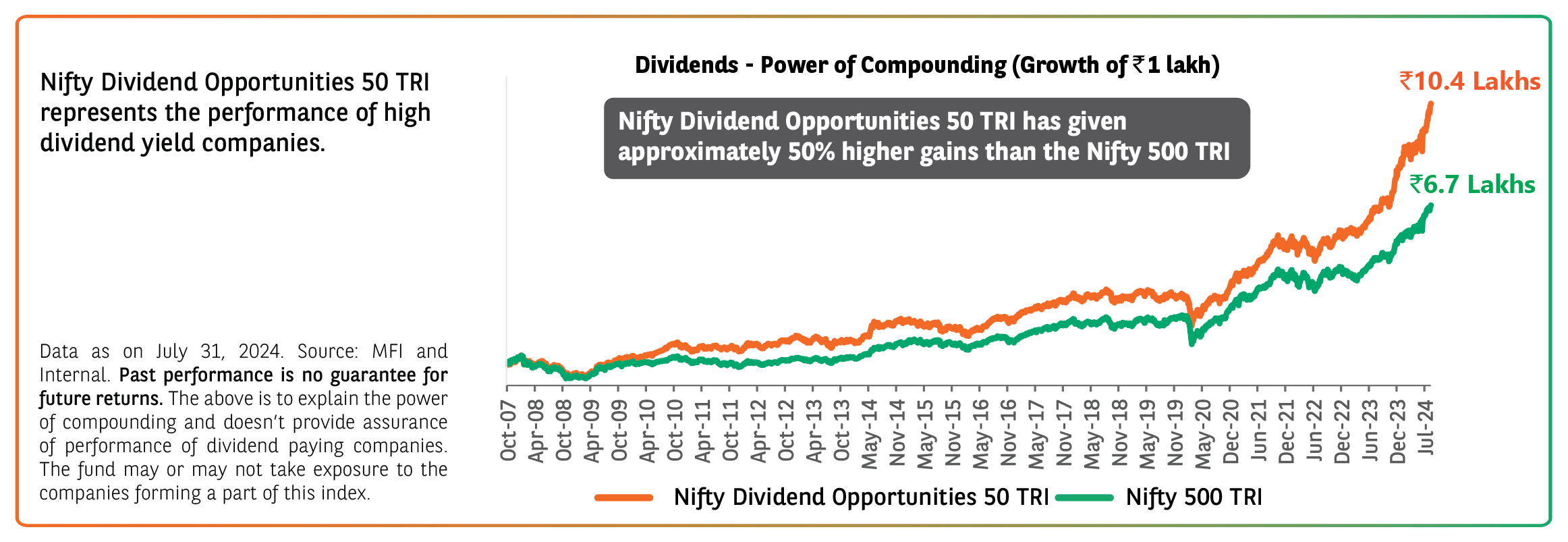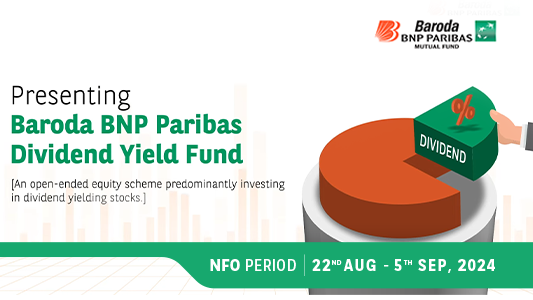Baroda BNP Paribas Dividend Yield Fund
Dividend Yield is the dividend paid out by a company divided by the market price of the company. Dividend Yield Funds are equity funds which tend to invest in equity and equity instruments of dividend paying companies.






